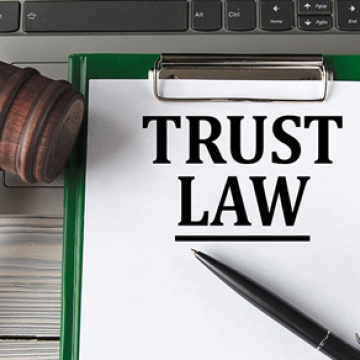Recent News & Blog / Estate Planning
4 ways to address elderly parents in your estate plan
An estate plan typically includes accommodations for your spouse, children, grandchildren and even future generations. Yet the older generation may also need your financial assistance. Contact the CPA's and business advisors at SEK to answer your questions about estate planning for your and your parents.
A power of attorney is a critical component of an effective estate plan
While much of your estate plan focuses on actions that take place after death, it’s equally important to have a plan for making critical financial or medical decisions if you’re unable to make them for yourself during your lifetime. This is why including a power of attorney in your estate plan is a must. Contact the CPA's and business advisors at SEK for additional details.
Comparing inter vivos and testamentary trusts
Trusts are used to accommodate asset transfers beyond dispositions in a will. There are two main types: the inter vivos trust and the testamentary trust. The choice between an inter vivos or testamentary trust often depends on your estate planning objectives, including tax implications and whether you want to avoid probate or maintain control over assets. Contact the CPA's and business advisors at SEK to answer your tax questions and for more tax tips.
Where should you keep your estate planning documents?
You’ve likely put a great deal of time, effort and expense into implementing an estate plan that meets your goals. But unless your loved ones know that these documents exist, and how to find and access them, your well-laid plans can be derailed. Contact the CPA's and business tax advisors at SEK with your questions about estate planning, tax planning and other tax tips.
In your own words: A letter of instruction complements a will
A smart estate plan should leave no doubt as to your intentions. Writing a letter of instruction can go a long way toward clearly communicating all of your thoughts and wishes.
Higher interest rates spark interest in charitable remainder trusts
If you wish to leave a charitable legacy while generating income during your lifetime, a charitable remainder trust (CRT) may be a viable solution. The trust pays you income for life or for a term of up to 20 years, then distributes the remaining assets to one or more charities. Contact the CPA's and business tax advisors at SEK for help in establishing your CRT or for more financial advice and tax tips.
Consider providing your beneficiaries with the power to remove a trustee
To ensure that a trust operates as intended, it’s critical to appoint a trustee that you can count on to carry out your wishes.
Two estate planning documents working in tandem: A living trust and a pour-over will
At the very least, your estate plan should include a legally valid will governing the disposition of assets upon your death. But comprehensive estate planning often goes much further.
Owning assets jointly with a child may not be the right estate planning strategy
There’s a common misconception that owning assets jointly with a child or other heir is an effective estate planning shortcut. While this strategy has a certain appeal, it can invite a variety of unwelcome consequences that may quickly outweigh any potential benefits.
Have you coordinated your payable-on-death accounts with your estate plan?
Payable-on-death (POD) accounts can provide a quick, simple and inexpensive way to transfer assets outside of probate. They can be used for bank accounts, certificates of deposit and even brokerage accounts.









